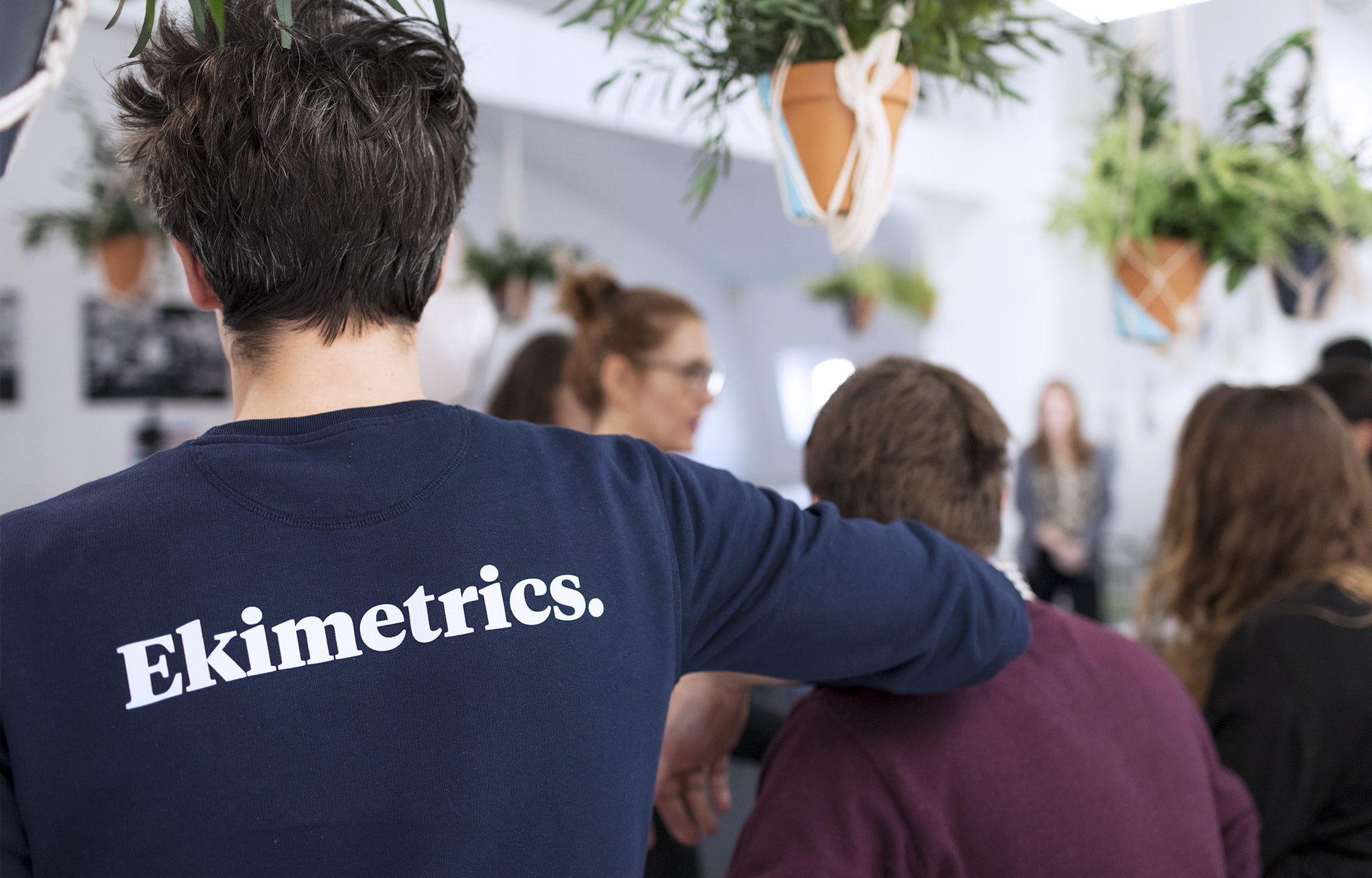About Ekimetrics
About Ekimetrics
Ekimetrics is the first pure player in Data Science in Europe. We operate from Paris, London, New York and Hong Kong with 320+ Data Scientists, Data Engineers, Full Stack Developers, strategy consultants and UX designers.
We help companies steer their data opportunity, build data capabilities, and deploy actionable solutions, to power up marketing and operational performance, as well as (re)energizing business models. Our primary focus is to deliver immediate business gains, while guaranteeing sustainable data capital for our clients.
You can learn more in our official website
 The Tangram room in our Paris office
The Tangram room in our Paris office
Our convictions
- 🙋♂️ Human:
Agile support throughout the project that puts users at the heart of the approach. ECOVADIS certified, and in the process of BCORP certification.
- 🌳 Ecological:
A greenIT approach with a responsible use of digital technology. AI at the service of environmental matters with commitments for all employees who are trained in these issues.
- 🔍 Transparent:
An AI mastered thanks to the interpretability of the algorithm; opening the black box to give the possibility for the human to keep control of the process and interpret results.
- ⚓ Equitable:
An understanding of biases on algorithms, datasets, performance measurement and context to ensure non-discriminatory treatment by algorithms.
- 🔑 Secure:
A controlled technical environment, carefully chosen to respect the principles of data security and sovereignty.
- 🙌 Responsible:
A responsible and respectful approach to data privacy in accordance with GDPR policy. A charter and a code of conduct imposed on Ekimetrics employees.
Our methodologies
Industrialization by design 🦾
The operational implementation of a data science solution has two key pre-requisites for success: the robustness of the proposed tool and the scalability of the associated service. These two features provide the foundation for a stable and sustainable solution that provide for an unlimited and ever-growing number of users.
Our method to industrialize data science solutions leverages three practices:
- DevOps – for continuous and shorter analytics deployment cycles, based on a scalable and governed infrastructure which is designed for technological solutions that will evolve over time
- DataOps – for a bolstered data production chain, from the intake of raw data all the way to the production of business value
- MLOps – to ensure that AI’s performance and costs are under control in order to address the business objective over the long run
Human-centered AI
AI is not the solution, it’s a feature that if well designed can add unique value to solve real problems.
Building a real data project requires interacting with experts, businesses & customers and our approach ensures that humans are at the heart of the algorithmic creation process (UX design, simulations, trust design, active learning)
At Ekimetrics we are careful to apply design thinking methodology to ensure the consistency of our product vision with end user needs.
The success of a data-driven initiative is when it impacts operational processes, aligned with the company objectives, which requires the delivered solution to address the 3Us:
Usable: integrated within the technical stack and connected with operational systems
Useful: understood by business users who are able to interpret and act upon the results and recommendations
Used: actually used by business users for decision making, and continuously improved to follow the business context and evolutions
Agile Data Science Framework
Our approach in using an agile methodology allows this theory to be put into practice:
Fast iterations: To proceed through iterative cycles interspersed with phases of re-prioritization of tasks, demos and user feedback, to approach final expectations as quickly as possible
User centric: To include end users from the very first phase of the project thanks to a design thinking approach to always identify the right problem and the right solution
Built for and by a team: To minimize silos in agile teams by constituting multidisciplinary and complementary teams and by establishing DevOps / DataOps practices
Prioritized by value and risk: Any task must be evaluated at each iteration on several axes: the risk incurred, the complexity, and the expected business value. Deprioritizing is not a taboo.
Continuous improvements: Each iteration must allow the project to move forward and the teams to learn, by monitoring quality KPIs and by carrying out retrospectives on what worked and what did not work
